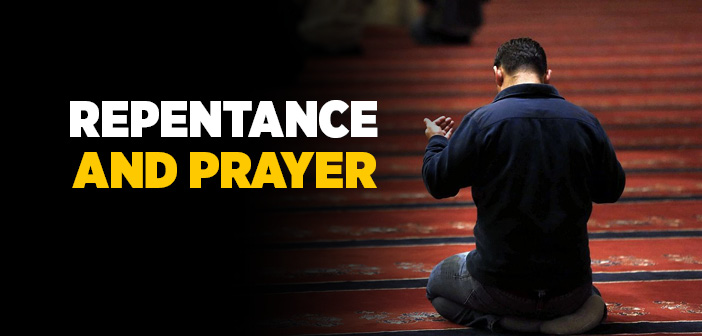Why do Muslims obey God? What rules does Islam follow? What are the 7 biggest sins in Islam?
Filling the heart with the Quran inspired wisdom depends on the spiritual level of our heart whilst reciting it.
Subjecting him to the Quran is undoubtedly one of the greatest blessings the Lord has bestowed upon man. The perfect measures for the true peace and stability of both the spirit and the body is found in the inspiring content of the Quran. Man’s happiness and salvation is possible to the extent of the share he embodies of these perfect measures. A person, who loses his inner balance by turning his back on the spirituality of the Quran instead of seeking refuge in it, has effectively laid waste on his human integrity. Responding to the greatest of all blessings with ungratefulness, he has brought about his own self-destruction in the maze of his desires and ambitions.
The Quran is a font of Divine wisdom that hands out cures and comfort to bleeding hearts and tired spirits. It is a generous Divine gift, holding the keys to welcoming the dreadful yet inevitable moment of death as a pathway, a wedding night (shab-i arus), for a believer to reach his Lord. The Glorious Lord presents His Divine Word to entire humankind in the following:
“O men! There has come to you indeed an admonition from your Lord and a healing for what is in the breasts and a guidance and a mercy for the believers.” (Yunus, 57)
The Blessed Prophet -upon him blessings and peace- says, in a hadith:
“Each feast holder desires people to attend his feast and is delighted by it. The Quran is the feast of Allah. Do not remain distant from it.” (Darimi, Fadailu’l-Quran, 1)
“Read the Quran…for Allah will not punish a heart which has the Quran in it.” (Darimi, Fadailu’l-Quran, 1)
“The true people of the Quran are the people of Allah…and they are His true servants.” (Hakim, Mustadrak, I, 743)[1]
Hearts distant from the remembrance of the Lord and from reading the Quran become hardened and depressed, as we can gather from the words of Abu Musa al-Ashari -Allah be well-pleased with him- to those who had come to visit him: “Continue reading the Quran! Do not, ever, leave it unread for a long period of time…otherwise your hearts will become hardened like those before you!” (Muslim, Zakat, 119)
The following incident goes to show how the Quran has an effect even on animals and angels:
“I was reading Surah Baqara one night. My horse was next to me, tied. But at one stage the horse began to rear up. I stopped reading and the horse calmed down. Then, I resumed reading but again the horse began to rear up once again as I read. Fearing he might be trampled under the horse’s hooves, I was forced to bring my little son Yahya closer to me. But then I looked up to the sky and saw spots that looked like lamps, which after a while, rose further up into the sky and disappeared from sight. In the morning, I told the Messenger of Allah -upon him blessings and peace- of my experience.
‘Read Usayd, read,’ he said to me before asking, ‘do you know, Usayd, what those things were that you saw?’
‘No’, I replied.
‘They were angels who had come to listen to your recital of the Quran. Had you continued reading, they would have listened to you until daybreak. They would not have remained secret to other people either, they would have seen them clearly like you did.’” (Bukhari, Fadail’ul-Quran, 15)
The Quran was revealed to man; for to a man of heart it is a deep treasure of contemplation. Aloofness to the spirituality of the Quran means a sheer and absolute destruction. To those oblivious to the ocean of wisdom and mysteries that is the Quran, the Almighty states:
“Will they then not meditate on the Qur’an, or are there locks on the hearts?” (Muhammad, 24)
The Quran is the manifestation of the names of Allah, glory unto Him, reflected onto our understanding in the form of speech. The Almighty expresses the Quran’s infinite majesty of meaning in the following ayah: “And were every tree that is in the earth (made into) pens and the sea (to supply it with ink), with seven more seas to increase it, the words of Allah would not come to an end; surely Allah is Mighty, Wise.” (Luqman, 27)
Filling our hearts with the Quran inspired wisdom depends on the spiritual level of the heart whilst reciting it. To attain to the truth of the Quran, it is therefore vital to raise the heart to the desired level, as the Quran has a nature that can both guide or divert a person, depending on the intention and spiritual level of the reader. Nonetheless, if recited in the appropriate manner, the ayat of the Quran produce a gush of spiritual excitement in believers’ hearts. So states the Almighty:
“Allah has revealed the best announcement, a book conformable in its various parts, repeating, whereat do shudder the skins of those who fear their Lord, then their skins and their hearts become pliant to the remembrance of Allah; this is Allah’s guidance, He guides with it whom He pleases; and (as for) him whom Allah makes err, there is no guide for him.” (az-Zumar, 23)
“Those only are believers whose hearts become full of fear when Allah is mentioned, and when His communications are recited to them they increase them in faith, and in their Lord do they trust.” (al-Anfal, 2)
The first condition of properly benefiting from the Quran is to approach it with respect; a kind of respect that shows the importance attached to the Word of Allah, glory unto Him. Comprising the entirety of truths and insights into all mysteries to serve the needs of humankind until the Final Hour, the Quran is undoubtedly a magnificent guide. This characteristic of the Quran is highlighted by the Almighty Himself: “Surely this Quran guides to that which is most upright and gives good news to the believers who do good that they shall have a great reward.” (al-Isra, 9)
As the Quran is a Divine Book whose role as a guide is set to continue until the Final Hour, all Muslims under its guiding light are obliged to lead a Quranic way of life until death comes knocking to lead them to the life of eternity. Attaining spiritual happiness and salvation here and the pleasure of the Lord and His blessings in the Hereafter, is possible only in this manner.
Properly benefiting from the Quran is possible only to the extent that it is read with the heart. This is wonderfully expressed in the following reply of the Blessed Prophet -upon him blessings and peace-, upon being asked about the preferred voice and manner of reciting the Quran to look out for when listening to it: “The recitation of the who, when reads, evokes in you the feeling that he fears Allah.” (Darimi, Fadailu’l-Quran, 34) Indeed, it was the wonderful recitation of the Quran at the home of his sister Fatima -Allah be well-pleased with him-a that stirred up feelings of awe in Omar -Allah be well-pleased with him- and guided him to the Truth.
The below ayat shed light on the proper manner of reading the Quran:
“A Book We have revealed to you abounding in good that they may ponder over its verses, and that those endowed with understanding may be mindful.” (Sad, 29)
“…and recite the Qur’an in slow, measured rhythmic tones.” (al-Muzzammil, 4)
Reportedly, Omar -Allah be well-pleased with him- completed reading surah Baqara in exactly twelve years and sacrificed a camel in thanksgiving after he did. (Qurtubi, al-Jami, I, 40)
It similarly took Abdullah ibn Omar -Allah be well-pleased with him- eight years to complete reading the same surah. (Muwattaa, Quran, 11)
Upon learning ten ayat from the Blessed Prophet -upon him blessings and peace-, the Companions would never proceed onto the next ten before thoroughly understanding and putting to practice the wisdoms and commands contained therein. In doing so, they embodied the knowledge of the Quran and gradually perfected themselves with its wisdom. (Ahmed, V, 410)
What these examples make clear is that whilst reading the Quran, one must not just pronounce the words but rather seek to acquire a share of its inner wisdoms, which allows one to devotedly obey its commands and embody its morals.
It should be borne in mind that the Ottomans, who, after the Age of Bliss, typify the most outstanding level of Islam, owe this honor to the blessings of an exceptional conduct of respect towards the Quran. It is common knowledge in history that Osman Ghazi, the founder of the State, spent a night at the house of Sheikh Edebali sleepless, supposing it would have been disrespectful to lie down in a room with a Quran hanging on the wall. In addition, the ban of touching the Quran without ablution alludes to the necessity and importance of respectful conduct towards it. Also known is the significance in Islamic etiquette (adab) of not holding the Quran below the waist. Conversely, let alone reading the Quran, even simply gazing at its letters is encouraged and considered reward reaping, as it engenders affinity with the Quran. One must therefore avoid disrespect towards the Quran and make a habit of reading it, even if it be a little amount each time. It must also be kept close in mind that the very first command of the Quran is to ‘Read!’ (‘اِقْرَأْ’ al-Alaq, 1). The import of the command to read is also underlined by the fact that reading at least a portion of the Quran is an integral part of a proper salat.
The first public speech given by Sulayman ibn Abdulmalik, after being assigned as the new Caliph of the Umayyad State was: “Servants of Allah…Take the Book of Allah as guide. Accept its rulings and practice it, for without a doubt, the Quran scatters the traps and plots of Shaytan as the morning light scatters the dark of night!” (Bayhaki, Kitabu’z-Zuhd, p. 61)
All things considered, it becomes clear that establishing a tight bond with the Quran is an essential aspect of life. We therefore must ask our Lord to flood our hearts with the sublime joy of the Divine Word. To be sure, one of the prayers of the Blessed Prophet -upon him blessings and peace- was:
“My Lord…For the sake of each of Your Beautiful Names, which You may have taught one of Your servants, revealed in Your Book or kept hidden with You, I beg You to make the Quran the spring of my heart, the light of my chest and the cure for my sorrow and anguish!” (Ahmed ibn Hanbal, Musnad, I, 391)
[1] The ‘people of Allah’, who have not only memorized the Quran but have also obeyed its commands and embodied its morals, are provided with numerous blessings by Allah, glory unto Him. It has even been reported that the corpses of some huffaz remain in tact, without the least sign of decay, after their death. The beloved Mahmud Sami Ramazanoğlu -may Allah sanctify his secret- personally testified to seeing the corpse of a hafiz in Adana, unearthed thirty years after his death due to necessary circumstances. Not only had his corpse remained in tact, even his shroud had remained undamaged.
Source: Osman Nuri Topbaş, Sufism, Erkam Publications





